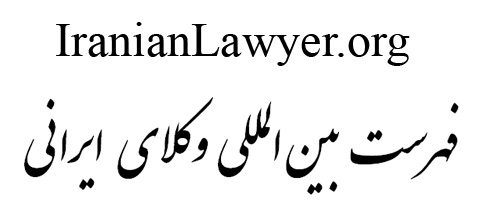Iranian Lawyers London UK

Find Iranian lawyers in UK
Add a lawyer
Iranian immigration lawyers,
Iranian employment lawyer
London, Uk
Immigration law refers to national government policies which control the immigration to their country, and it is related to nationality law, which governs the legal status of people, in matters such as citizenship.
Immigration laws vary from country to country, as well as according to the political climate of the times, as sentiments may sway from the widely inclusive to the deeply exclusive of new immigrants.
Immigration law regarding the citizens of a country is regulated by international law. The United Nations International Covenant on Civil and Political Rights mandates that all countries allow entry to its own citizens.
Certain countries may maintain rather strict laws which regulate both the right of entry and internal rights, such as the duration of stay and the right to participate in government.
Most countries have laws which designate a process for naturalization, by which immigrants may become citizens.
United Kingdom employment law involves the legal relationship between workers, employers and trade unions. People at work in the UK benefit from a minimum charter of employment rights.
This includes the right to a minimum wage of £6.08 under the National Minimum Wage Act 1998, 28 paid holidays, and no longer working hours than one consents to under the Working Time Regulations 1998, the right to leave for child care, and the right to request flexible working patterns under the Employment Rights Act 1996.
The Equality Act 2010 ensures people are judged by the content of their character, and not regulated characteristics such as race, gender, sexuality, beliefs, disabilities or age.
The London UK Employment Rights Act 1996 adds that, unless the employee repudiates the relationship, before a dismissal every employer must give reasonable notice after one month of work, backed by a sufficiently fair reason after one year of work, and with a redundancy payment after two years.
Beyond individual rights, workers have the ability to participate in decisions about how their enterprise is managed through a growing set of statutory rights and the traditional models of collective bargaining.
Gradually, the number of "John Lewis" style participatory institutions at work have grown, often mirroring European standards.
Collective bargaining between trade unions and company management remains the UK's primary participatory model. Collective agreements are backed up by the threat of a strike which is lawful if "in contemplation or furtherance of a trade dispute".
Since the early 1980s, industrial action has steadily decreased, as has membership of trade unions.
The Trade Union and Labour Relations (Consolidation) Act 1992 sets out rules for the constitution of trade unions, members' rights, the conditions to be fulfilled before strike action may be taken and the legal status of collective agreements.